Xueting Zhang
Shallow Bayesian Meta Learning for Real-World Few-Shot Recognition
Jan 08, 2021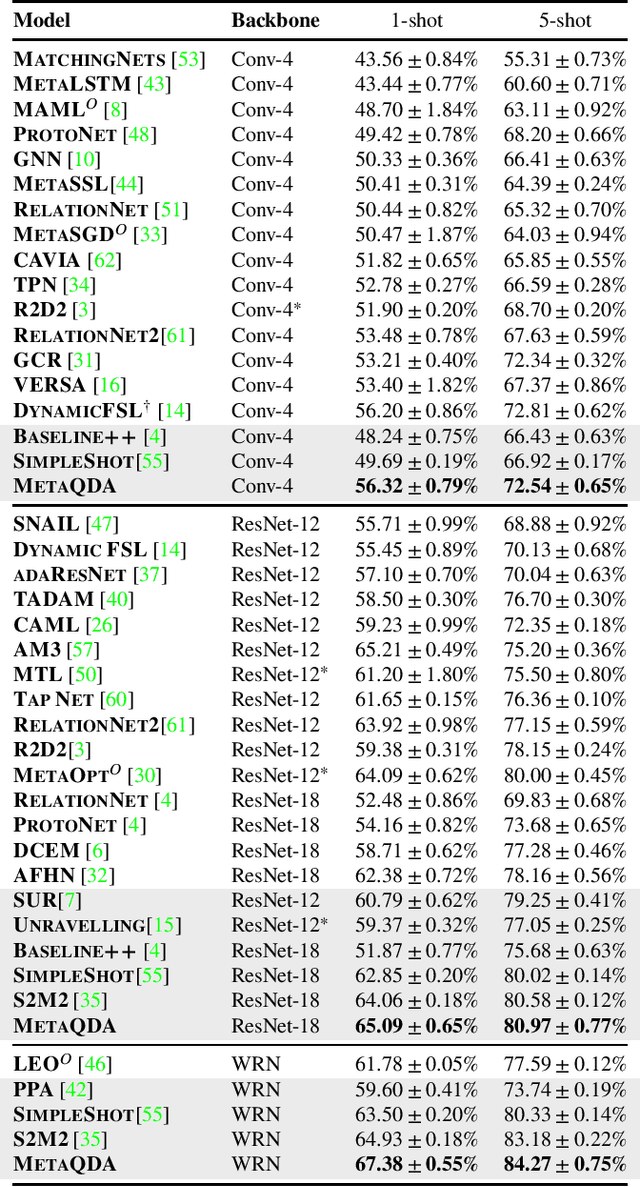
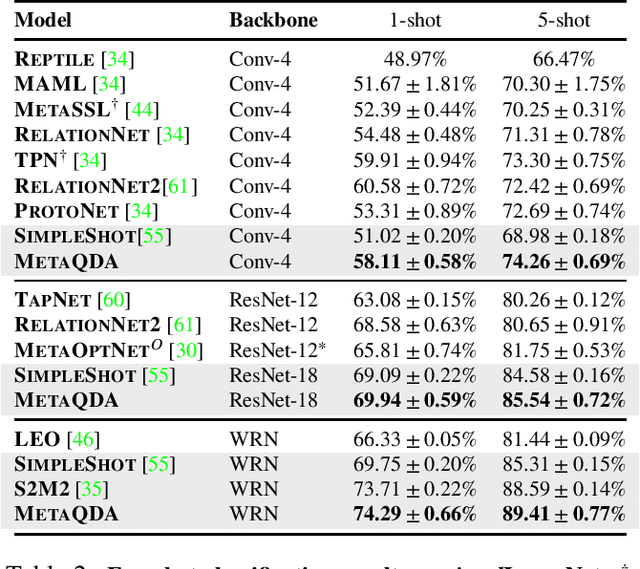
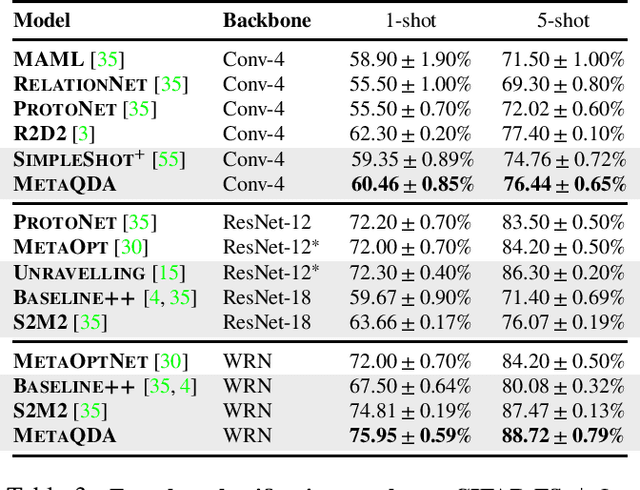
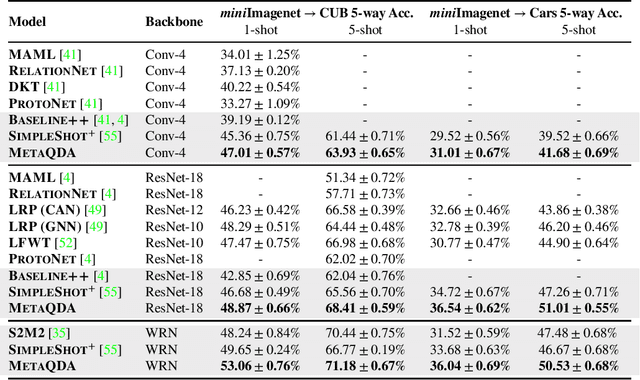
Abstract:Current state-of-the-art few-shot learners focus on developing effective training procedures for feature representations, before using simple, e.g. nearest centroid, classifiers. In this paper we take an orthogonal approach that is agnostic to the features used, and focus exclusively on meta-learning the actual classifier layer. Specifically, we introduce MetaQDA, a Bayesian meta-learning generalisation of the classic quadratic discriminant analysis. This setup has several benefits of interest to practitioners: meta-learning is fast and memory efficient, without the need to fine-tune features. It is agnostic to the off-the-shelf features chosen, and thus will continue to benefit from advances in feature representations. Empirically, it leads to robust performance in cross-domain few-shot learning and, crucially for real-world applications, it leads to better uncertainty calibration in predictions.
Deep Comparison: Relation Columns for Few-Shot Learning
Nov 20, 2018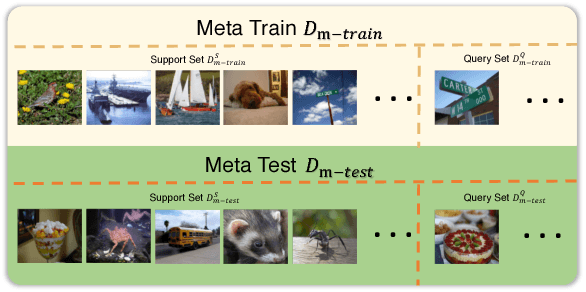
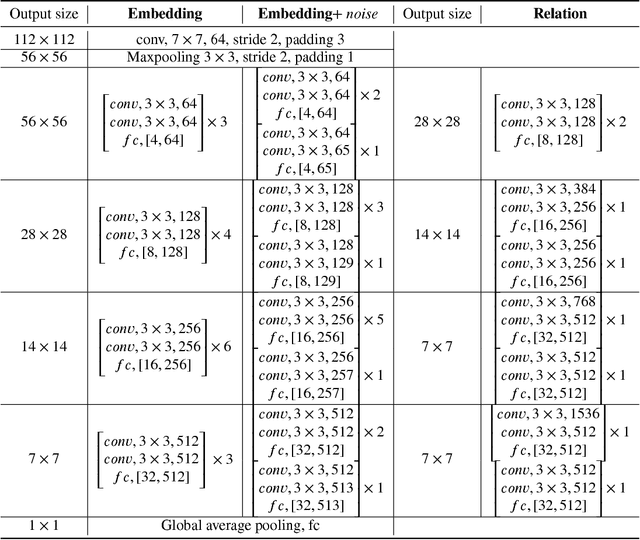
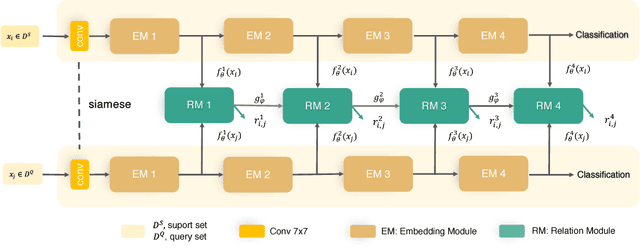
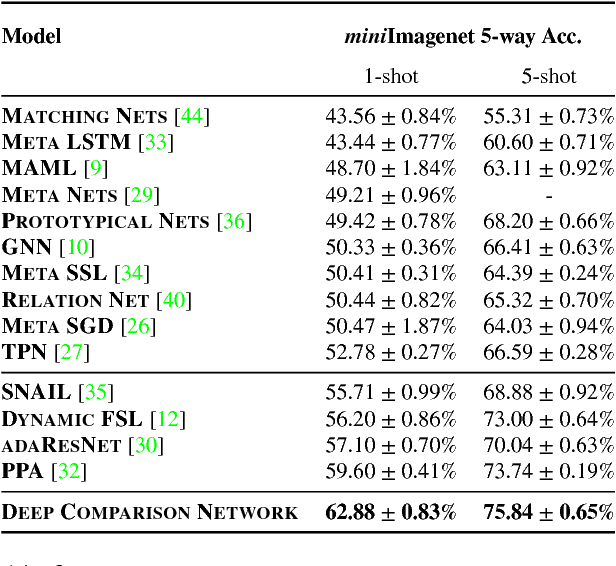
Abstract:Few-shot deep learning is a topical challenge area for scaling visual recognition to open-ended growth in the space of categories to recognise. A promising line work towards realising this vision is deep networks that learn to match queries with stored training images. However, methods in this paradigm usually train a deep embedding followed by a single linear classifier. Our insight is that effective general-purpose matching requires discrimination with regards to features at multiple abstraction levels. We therefore propose a new framework termed Deep Comparison Network(DCN) that decomposes embedding learning into a sequence of modules, and pairs each with a relation module. The relation modules compute a non-linear metric to score the match using the corresponding embedding module's representation. To ensure that all embedding module's features are used, the relation modules are deeply supervised. Finally generalisation is further improved by a learned noise regulariser. The resulting network achieves state of the art performance on both miniImageNet and tieredImageNet, while retaining the appealing simplicity and efficiency of deep metric learning approaches.
 Add to Chrome
Add to Chrome Add to Firefox
Add to Firefox Add to Edge
Add to Edge